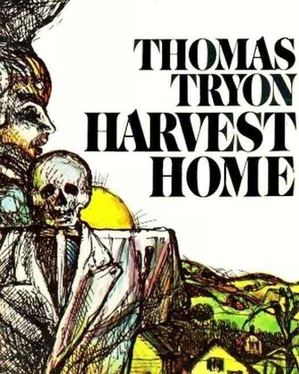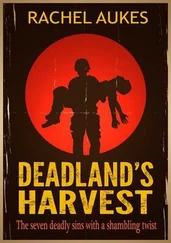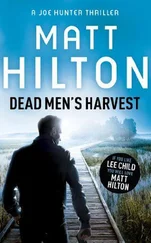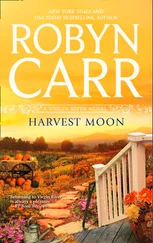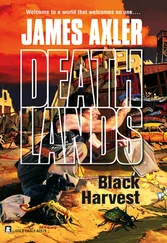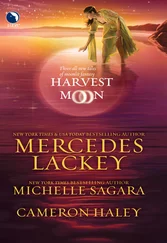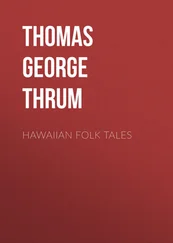Thomas Tryon - Harvest Home
Здесь есть возможность читать онлайн «Thomas Tryon - Harvest Home» весь текст электронной книги совершенно бесплатно (целиком полную версию без сокращений). В некоторых случаях можно слушать аудио, скачать через торрент в формате fb2 и присутствует краткое содержание. Жанр: Ужасы и Мистика, на английском языке. Описание произведения, (предисловие) а так же отзывы посетителей доступны на портале библиотеки ЛибКат.
- Название:Harvest Home
- Автор:
- Жанр:
- Год:неизвестен
- ISBN:нет данных
- Рейтинг книги:5 / 5. Голосов: 1
-
Избранное:Добавить в избранное
- Отзывы:
-
Ваша оценка:
- 100
- 1
- 2
- 3
- 4
- 5
Harvest Home: краткое содержание, описание и аннотация
Предлагаем к чтению аннотацию, описание, краткое содержание или предисловие (зависит от того, что написал сам автор книги «Harvest Home»). Если вы не нашли необходимую информацию о книге — напишите в комментариях, мы постараемся отыскать её.
For Ned and his family, Cornwall Coombe was to be come a place of ultimate horror.
Harvest Home — читать онлайн бесплатно полную книгу (весь текст) целиком
Ниже представлен текст книги, разбитый по страницам. Система сохранения места последней прочитанной страницы, позволяет с удобством читать онлайн бесплатно книгу «Harvest Home», без необходимости каждый раз заново искать на чём Вы остановились. Поставьте закладку, и сможете в любой момент перейти на страницу, на которой закончили чтение.
Интервал:
Закладка:
“Did I drink a lot last night?”
“No. But drinking’s never been your long suit.” I tried to lure her back into my arms. She resisted, saying she must get up and do the picnic lunch. Slipping away, she held her shift against her as she ran to the shower. I pulled the pillow onto my stomach and cradled it, stretching and feeling great crackings along my night-knotted frame, and wondering what the Agnes Fair would be like, this village festival everyone set such store by. Agnes-who was she? I confess I was intrigued by the prospect no less than Beth appeared to be. Where but in Cornwall Coombe did people have folk festivals any more?
I still found it difficult to believe places like this existed in the world today. Only it wasn’t in the world; it was another world, a world of its own. On that morning, I lay there thinking how perfectly it suited me. We had been part of that discontented host longing to escape the city; like so many others, we had sought to rediscover more stable values, to satisfy a yearning to set our feet upon the land again. We had become frightened in New York, of the lurkers in the doorways. So we had fled to the country, hoping the country would provide what the city could not: peace, tranquility, and safety. All to be found in Cornwall Coombe, and while Beth showered, I drowsed on the pillow, contemplating the joys of being possessed of an eighteenth-century house.
2
Sometimes we said we must have been possessed even to buy the house. It was a matter of the merest coincidence that we had found it at all, so out of the way was it. After years of Sunday brunch discussions with friends about the joys of country life, we’d begun hunting. Started close to the city, looked in Westchester, in Rye, in Croton-on-Hudson, Bedford Hills; then sneaked across into Connecticut, in Greenwich, Cos Cob, Darien, Westport. Took Polaroids of anything that seemed likely, then scotched them one after the other: too large, too small, too expensive, poor schools, not enough character. The truth was we were afraid to make a decision.
Finally, the decision was made for us, or so it seemed. In February, Beth’s father, Lawson Colby, had died. We had gone up for the funeral, and in mid-March we packed Kate in the back seat and drove up again to settle the last of his affairs and arrange for the storage of his belongings. When we drove back the weather was bad. There was no snow, but a fine sleety drizzle made the prospect of the long drive a dreary one. Beth was silent and withdrawn, haunted by whatever guilts she may have been harboring about her father; Kate, who had the sniffles, was in one of her moods.
Then, an hour or more along the way, the rain stopped and the sun struggled from behind the overcast. On Beth’s whim, we left the four-lane parkway and got on an old turnpike to take in some of the small towns along the way; then we left the turnpike and drove along a back-country road; then we got lost. We came to a place called Saxony, and that was on the map, and beyond that was something called Tobacco City, also on the map, and across the river Cornwall Coombe, hardly on the map at all.
Suddenly, as we came over a hill, we saw in the upper left-hand corner of a vacant prospect an old, swaybacked covered bridge spanning a narrow reach of the river. Though our side was still ghost-gray, the farther side was bathed in a pale yellow light, as though that land were in some way more special, more deserving of the benediction of sun, and as the clouds moved above the lowering expanse, I saw something that made me smile and wait for Kate’s cry. It came on cue.
“Look, Daddy-Mummy! A rainbow!”
Faint, yet it was there, a wide bridge of colors above the one of wood, and it was only inevitable that we find the route to the bridge and cross over. A sign read, “Lost Whistle Bridge.”
Had the sky been filled with fire and brimstone, a rain of St. Elmo’s fire, or some other ancient portent, a man might well have continued along his planned route. But a rainbow? Who could mistake that for anything but a sign of the most auspicious kind? Every schoolboy knows a rainbow is lucky; at the end there lies a pot of gold.
I turned the car, and what we discovered thereafter became a source of wonderment to all of us, for we had not gone far before I realized we truly were in Heart’s Desire. No more than a hamlet, Cornwall Coombe lay nestled among some low hills, girdled by groves of just-budding maples and locust trees. Everywhere the forsythia and pussywillow were in bloom, as well as the shallow bushes along the riverbank, and the air became suddenly flush with spring.
A remote section, its roads seemed hardly traveled, but for an occasional truck or farm wagon. First it had been only empty countryside, farms and farmland, sagging silos, fences of wire or stone, the fallow earth ready for planting, and not a soul to be seen. Then, rounding a bend, we saw in a large plowed field a farmer with a hoe. He was not, like the man in the poem, “bowed by the weight of centuries,” but a tall, upright fellow, a giant of a man, blond-headed and almost proud-looking. Alone among the furrows, he stood easily, the hoe over his shoulder, and he looked off at the tilled land in a waiting attitude as, over the shallow brow of the hill beyond, a horde of figures appeared, waving aloft a forest of hoes, ragged against the skyline. The man raised his hoe in a kind of welcoming gesture, and the figures spread out across the field, women and children poking holes in the soil with their hoe handles, the men bending to drop seed from bags slung over their shoulders. Now the holes were closed up, and, the planters moving in structured patterns across the dark umber of the field, the pallid yellow sun breaking through the slate-gray clouds, I thought of a Flemish landscape with its primitive simplicity, right and natural and perfect.
I remember experiencing at that moment an emotion I could not then-nor can I now-describe, a vague stirring inside me, some fugitive longing, a desire to stop the car, get out and feel my feet upon that earth, to be among those farm people planting seeds that would grow. Watching, Beth reached and pressed my hand. This was what we had been trying to express to each other, she and I. This was the reality of the dream.
The country road became a street: Main Street, naturally enough. Proceeding past a crossing with a sign reading “Penrose Lane,” we continued toward the center of the town, where Colonial houses bore plaques on their aged fronts proclaiming the date they had been built and who had built them: Penrose, 1811; Harper Penrose, 1709; Gwydeon Penrose, 1668. A good, Penroseate, New England town. Beth said it reminded her of a Currier & Ives print, and Kate squealed in delight at the flock of sheep cropping the turf of the broad Common in front of the white steepled church.
We wondered why the streets seemed so empty, for it was midday; then the answer become obvious: they were all out in the field, the entire village. We circled the Common, looking at the houses, the church, and other buildings, then drove back the way we had come. Beth squeezed my hand again, struck by the beauty of the place, and on that fine spring afternoon I had to admit it was unlike anything I had imagined would exist in this day and age. Its charm was instantly apparent, with an indefinable but unmistakable something that made it so attractive. Perhaps it was the spare, immaculate houses with their lawns just coming green, the plots of winter-tended gardens, the bright, beckoning window-gleam, the spruce paint on the clapboards and shutters, the lofty trees whose bare branches arched over the road.
When we came to Penrose Lane again, on the merest impulse I turned in. It proved an interesting turning: a wide, tree-lined street with handsome old dwellings behind elegant fences of wood or iron pickets, here a stone mounting step at the curb, there a stylish gilded weather vane atop a cupola.
Читать дальшеИнтервал:
Закладка:
Похожие книги на «Harvest Home»
Представляем Вашему вниманию похожие книги на «Harvest Home» списком для выбора. Мы отобрали схожую по названию и смыслу литературу в надежде предоставить читателям больше вариантов отыскать новые, интересные, ещё непрочитанные произведения.
Обсуждение, отзывы о книге «Harvest Home» и просто собственные мнения читателей. Оставьте ваши комментарии, напишите, что Вы думаете о произведении, его смысле или главных героях. Укажите что конкретно понравилось, а что нет, и почему Вы так считаете.
